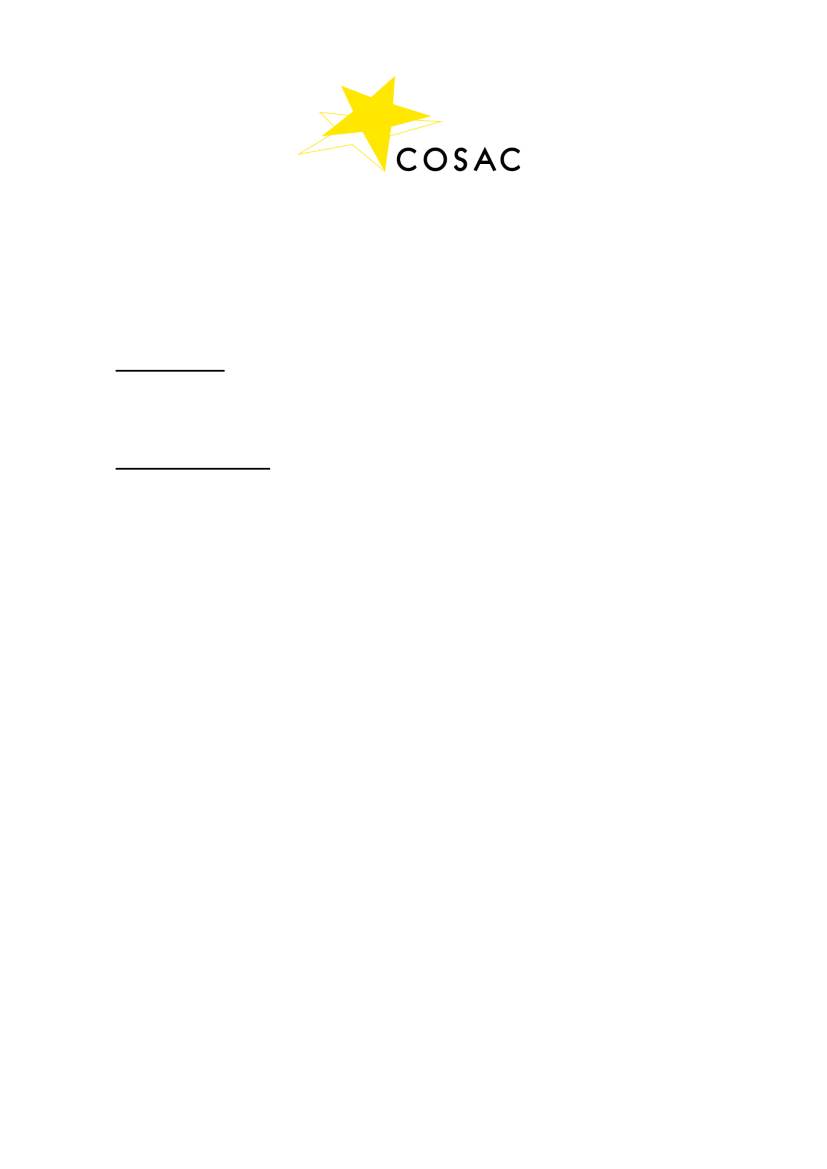
MINUTES OF THE MEETING OF THE CHAIRPERSONS OF COSAC
C
OPENHAGEN
, D
ENMARK
, 3 - 4 J
ULY
2025
Note:
The text of keynote interventions which have been shared with the Presidency will be
published on IPEX. A video recording of the full meeting is available via the webpage of the
Parliamentary Dimension of the Danish Presidency.
P
ROCEEDINGS
IN THE CHAIR: Ms Brigitte KLINTSKOV JERKEL, Chair of the European Affairs
Committee of the Danish
Folketing
W
ELCOME ADDRESS
Welcome address by Mr Lars-Christian BRASK, Deputy Speaker of the Danish
Folketing
In his welcome address Mr BRASK welcomed the chairs of the European Affairs Committees
gathered at the Danish
Folketing.
He presented the seven interparliamentary conferences to be
hosted by the
Folketing
during the Parliamentary dimension of the Danish Presidency of the
Council of the European Union, noting that these reflect Denmark’s key priorities. Among
these, Mr BRASK emphasized the unwavering support for Ukraine and boosting European
security and defense. He particularly expressed his satisfaction with the presence of Ms Ivanna
KLYMPUSH-TSINTSADZE at the Meeting of the Chairpersons of COSAC, and underlined
that Europe must continue to be a trusted ally to Ukraine. Continuing, Mr BRASK also
welcomed the presence of delegations from several EU candidate countries, as he emphasised
EU enlargement as a key driver of long-term European security for all Europeans. Mr BRASK
proceeded to present additional Danish priorities, linking them to the topics that would be
discussed at the upcoming interparliamentary conferences. Among the priorities mentioned
were the next long-term EU budget and how to finance a more ambitious Europe, ready to
deliver on present and future challenges. Mr BRASK furthermore mentioned Europe’s
competitiveness with a focus on innovation, simplifying rules and strengthening businesses to
compete internationally. Mr BRASK also underscored the green transition as a major topic for
several of the conferences. In that regard he highlighted boosting the production and
infrastructure of affordable green energy, as he saw this as the basis for the green transition,
for security of energy supply and for European competitiveness. Moreover, on the green
transition he highlighted new bio-solutions and plant-based foods, and their support for the
green transition of the European agri-food sector. Finally, Mr BRASK addressed the topic of
digitalisation and finding the balance between regulating and innovating.
1